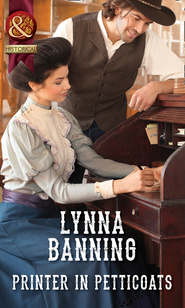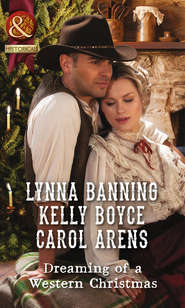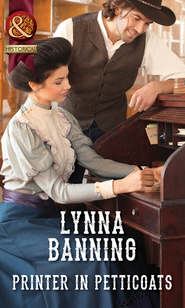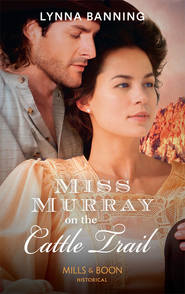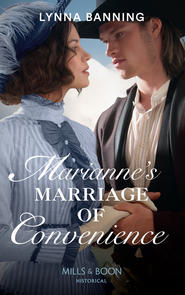По всем вопросам обращайтесь на: info@litportal.ru
(©) 2003-2025.
✖
Plum Creek Bride
Настройки чтения
Размер шрифта
Высота строк
Поля
He would overlook the incident this time. Let her stay. But one more disaster—just one more unsettling event in his already unraveling world—and that would be that.
Baby or no baby, he would send Erika Scharf on her way.
Chapter Five (#ulink_57638763-bfbe-5278-902c-204abe1c3932)
Erika watched the doctor tramp onto the back porch and stalk through the kitchen door. The screened panel swung shut behind him with a resounding thwap.
She knew she had overstepped. She had “taken too much upon herself,” Mrs. Benbow had warned when Erika appeared with the goat. Worse than disturbing the housekeeper, she had angered Dr. Callender, made him so furious his eyes burned like smoldering coals when he spoke to her.
Surely he knew she meant no harm to him, or to his flowers? His wife’s flowers, she amended. Why could he not see that zinnias were not as important as milk for his child?
Unless. Erika paused at the top porch step. Unless the child did not matter to him. Thoughtful, she moved into the kitchen and approached the ramrodstraight figure of Adeline Benbow, swishing an oversize iron spoon back and forth in the stockpot.
“Excuse, please, Mrs. Benbow.”
“Overstepped, ye did, traipsing out to bargain on your own,” the housekeeper snapped. “Told you so this morning. Got no more sense than a butterfly.” She banged the spoon against the side of the pot for emphasis.
“Ja,” Erika said in a low voice.
“Use English, girl! You will never learn, otherwise.”
“Yes,” Erika repeated. “You are correct.”
“And just who’s going to milk that animal, I ask you?” the housekeeper demanded.
“I will. And feed it, too. Papa had a goat back in old country.”
“Hmmph. It’s just too much for the doctor after all that’s happened,” the housekeeper huffed. “Losing Miss Tess when they’d just begun their life together. well, it knocked him plumb sideways. Days he’d spend just staring at the bed where she had lain during her torment. Nights, too, staring and staring and seeing nothing. I’m surprised he drove the buggy to town today. Hasn’t set foot outside these walls since the funeral three weeks ago.”
“Maybe he visit the grave?” Erika ventured.
Mrs. Benbow shot her an odd look. “Maybe.” The corners of her thin mouth turned down, and her stirring arm slowed to a stop. An unfocused look came into her eyes.
Erika seized her chance. “What was lady like?”
“Miss Tess?” The stirring resumed, rhythmic figure eights accompanying her words. “Miss Tess was. Her people were from Savannah. Well-to-do they were, before the war. Miss Tess, she had most everything she ever wanted, and that included the doctor. One day he came to call on her father, Colonel Rowell, and the next day he and Miss Tess were engaged.”
“Why did doctor go to that place, Savannah?”
“Colonel Rowell was a surgeon during the war. He found a new way to set broken bones, and—”
“And doctor want to learn?” Erika finished for her.
“Saints, no! Doctor knows all about such things from his training in Scotland, you see. He went to Savannah to thank Colonel Rowell for saving his own father’s life after the battle of Shiloh.”
“And he meet Miss Tess and marry her? She was very beautiful?”
“Oh my, yes,” the housekeeper murmured. “Hair like black silk, she had. And eyes so green they looked like emeralds.”
“And?” Erika prompted. An insatiable curiosity about the woman who had been mistress of this fine house, and the doctor’s affection for her, gnawed at her insides. She wanted to know all about the woman Dr. Callender had loved so much his child—even his own life—seemed unimportant now that she was gone.
“Well,” the housekeeper continued, “Miss Tess was cultured in the Southern way. She had a lovely voice, and she accompanied herself on the harp. She had fine taste in gowns, too—always wore the latest styles from Paris.”
Erika glanced down at her plain blue denim work skirt and the toes of her sensible shoes peeking from beneath the hem. She could never be a lady because her feet were too big and her tastes too simple. She was a working girl through and through, a poor shoemaker’s daughter with rough English speech and untutored manners. Such things could be learned, she supposed. But even if one had a quick mind, it required generations of breeding and practice in manners to make a real lady.
The housekeeper sighed and slid the lid onto the simmering soup kettle. “But for all that, Miss Tess didn’t—” She broke off and turned toward the sink.
Erika pricked up her ears. But? Miss Tess didn’t what? “Yes?” she invited.
She wanted to know about Mrs. Callender as a person. What kind of woman planted brilliant scarlet flowers in a thin, straight line like carefully spaced soldiers marching toward the front steps? Had Mrs. Callender been a kind woman? Did she like to laugh? Was she warm and caring as well as beautiful?
“Miss Tess never cared much for. Ah, well, never you mind. The bairn’s beginnin’ to wail, do ye hear? You’d best warm that milk you set such store by. I put your bucket in the pantry cooler. After that, you can help me with the ironing. I got too much starch in the doctor’s shirts again, and they scorch easy.”
Tess never cared for what? Erika wanted to shout, but Mrs. Benbow dismissed her with a wave. She pondered the unanswered question all the way up the stairs to the nursery. Perhaps later. She would spend all afternoon in the sweltering kitchen, helping the housekeeper with the ironing. Maybe then the old woman would finish that intriguing sentence.
But she did not Erika labored for hours over the starched white shirts as the baby slept in the nursery upstairs. By late afternoon her hands ached from lifting the heavy, nickel-plated sadiron and guiding it over the pleated shirtfronts. The six-mile walk out to Cyrus Peck’s farm and back early this morning hadn’t bothered Erika’s strong legs a bit, but pushing the heavy iron back and forth over acres of white linen made her shoulders ache.
The housekeeper smoothed sheets and pillowcases with a second iron until she plopped exhausted into the single chair next to the stove. “Teatime,” she announced in her raspy voice.
The thought of drinking a cup of scalding tea made Erika groan out loud. The kitchen was stifling, the air hot and heavy with moisture, the smell of scorch and tomato puree suffocating. She longed for a cool drink of spring water.
“You have a complaint, missy?” Mrs. Benbow queried, an unpleasant edge to her voice.
“Nein. No. Is very hot. I warm easy.”
The housekeeper sniffed. “A hothouse girl. But you work hard, I’ll say that for ye.”
“Papa used to say I do everything ‘hard.’ I do not like halfway things.”
Mrs. Benbow glanced up. “Your father is dead?”
Erika nodded. “Mama, too. Of fever, last year. We do not have doctor in my village.”
A curious look crossed the housekeeper’s face. “You mean you came to America alone? All by yourself?”
“Ja. No other way. No one in village want to leave, even though things there very bad. So I come alone.”
“Were…weren’t you frightened?”
“Oh, yes. I come anyway. Nobody see how I shake on inside.”
The housekeeper rose and set the teakettle on the stove. “I came with my Donald. I didna want to leave my home, but Donald wanted to build ships in America. Men are like that. They want to do things.”
“I also want,” Erika replied. “I want to speak good American, and be able to write, so I can become citizen. Maybe someday vote.”
“Vote! My stars, girl, are ye daft?”
Erika fished in her apron pocket for her notebook. “How spell ‘daft,’ please?”






